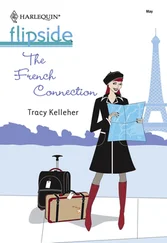And so Sisters for Sisters was born.
It was one thing to find a cause. It was another to carry it out. First had come the efforts to establish a base of operations in the capital of Kinshasa, staffed with a part-time office manager and a nurse who volunteered when she wasn’t working at the hospital. One year later, Lilah got the first traveling clinic up and running. Equipped with medical supplies and a portable lab, that team of two nurses and a female doctor set out to war-torn villages in eastern Congo. After three years, the organization was finally able to pay the nurse in the main office and had added another two clinics, then two more. In total, five traveling clinics were making the rounds—true, often on a shoestring budget and understaffed, but at least they were providing services.
Through her own outreach efforts, Lilah had also coordinated field operations with a group of volunteer doctors, and this partnership helped increase much-needed manpower and opened up Sisters for Sisters to larger funded studies. Now ten years later, her organization had seen both ups and downs—plenty of downs—but she was still unwilling to give up when there were good people like Esther suffering. But there were times when Lilah found it almost impossible to follow Esther’s credo and “think of tomorrow.”
Lilah shook her head. Tomorrow could wait, especially when this moment in time was perfect. Today, Esther was dancing joyfully with a prosthetic leg thanks to Lilah’s efforts.
The music ended. The performers and villagers erupted in a chorus of cheers.
Esther approached Lilah, her gait awkward but confident. She hugged her. “C’est pour toi.” “It’s for you.”
“C’est fantastique!” Lilah exclaimed in French. The language was a vestige of colonialism, but it was still the common language spoken in Congo. “Tu m’as donné un cadeau énorme! Merci bien.” “You’ve given me a wonderful gift. Thank you so much,” she said in her less than fluent French.
“But it is we who are thanking you, ma petite soeur, my little sister,” Esther said. “We are all sisters helping each other, mais non?” She smiled and her voice held a hint of teasing.
That was another of Lilah’s choices—the whole sibling concept.
Her idea for raising money was to hold 5K road races for women where each participant or “sister” sponsored a “sister” in Congo. The idea had taken off. Now her nonprofit organization had more than twenty local affiliates that sponsored fun runs and competitive races almost every month, all across America. Plans were already set to branch out to Europe and Australia.
But while these runs remained the backbone of Sisters for Sisters’s funding and a way for women to “actively” participate in the organization, Lilah recognized the limitations of races as the sole source of revenue. As a result, much of her time was spent writing grant proposals to funding agencies and foundations. This had led to a collaboration with a Doctors Without Borders type of operation to provide cell phones to women in rural villages, thus allowing them to obtain long-distance medical help. Similar programs in other countries, using towers and satellites that the military or World Health Organization had put in place, were already up and running.
Here at last was a way to supplement Sisters for Sisters’s meager staffing. So far only a pilot program in a few locales, including Esther’s village, had been funded, and if they were going to expand, they’d need more money. Lilah figured she’d have to give up on sleep altogether to get out more grant applications.
As if that weren’t enough to worry about, after a race two months ago in Poughkeepsie, New York, a woman had approached her who was a senior VP at a large investment house. She wanted to help set up a local banking system so that women could establish savings accounts to better the lives of their children.
Lilah felt overwhelmed. What did she know about banking? Microfinancing sounded like a good idea, but was it something Sisters for Sisters should be affiliated with? They always had been associated strictly with medical care. On the other hand, if she said no, would she be turning down an opportunity too good to miss? After all, the link between improved standards of health and financial well-being, not to mention better education, was well documented.
But all these questions would simply have to wait. Now she reveled in the warmth radiating from Esther’s skin as Lilah embraced her “sister.” A late-afternoon shower started to fall, heightening the smells of the village and the jungle.
Esther broke away from their hug and looked to the skies. “It’s time for the feast. It is good we have the school to keep us dry.” That was something of an exaggeration. Made of sticks, the school consisted of a thatched roof and dirt floor.
Esther clapped for her three remaining children to come, and with her head held high she clumped along on her artificial leg. She nodded for Lilah to follow.
Lilah joined the procession, smiling with the thought that she resembled one of the baby ducks following their mother in the children’s book Make Way for Ducklings.
A cell phone rang.
All the women reached into the deep folds of their dresses. Lilah had to laugh. It was a sign of progress that the towers were functioning, and that women were growing familiar with the equipment even though the likelihood of receiving calls was remote. Still, given the loudness of the ring tone, Lilah knew it was for her. She held her phone aloft to let the other women know, then rushed through the raindrops into Esther’s mud hut. “Hello,” she answered. Very few people outside her organization and her family had her number.
“Lilah, it’s Mimi.” The voice on the other end of the line belonged to Mimi Lodge, Lilah’s roommate from college. Always outspoken and very smart—some might say too smart for her own good—Mimi had gone on to be a television news correspondent.
“Talk about a voice out of the blue. Where are you calling from this time? Chechnya? Afghanistan?” Lilah asked. If there was a hot spot in the world, chances were that Mimi was there.
“Close. Waziristan.”
Lilah cringed. People sometimes questioned her sanity about traveling to Congo, but Waziristan? The northwest region of Pakistan was a known stronghold of terrorists. “Promise me you’re calling to tell me you’re safe,” Lilah implored.
“Not to worry about me. I’m in my element. It’s you I’m calling about—with news.”
“Don’t tell me—actually do tell me—that someone has decided to give Sisters for Sisters millions of dollars after seeing your piece on TV?” she asked.
“No, but there’s the possibility.”
“I’m always open to possibilities, long shots, even highly unlikely probabilities.”
“It’s like this. Seeing as you’re such a hard woman to track down, the alumni office of our illustrious alma mater, Grantham University, contacted me through my television network. They were hoping I could hunt you down directly.”
“Oh, please, there is no way I’m making a contribution to Annual Giving. I barely make enough money to pay the rent on my hovel of an apartment—and I use the term hovel generously,” Lilah decried. After college, she’d landed in Brooklyn, and for some mysterious reason that only the gods of real estate understood, her block had defiantly escaped the rampant gentrification that had swept the rest of the outer borough.
“Actually, it’s the other way around. They want to give you something.”
“You’re kidding me, right?” Lilah ran her hand through her chestnut-brown hair, which despite the practical clip holding it back in a ponytail, was frizzing madly in the rain and humidity.
Читать дальше












